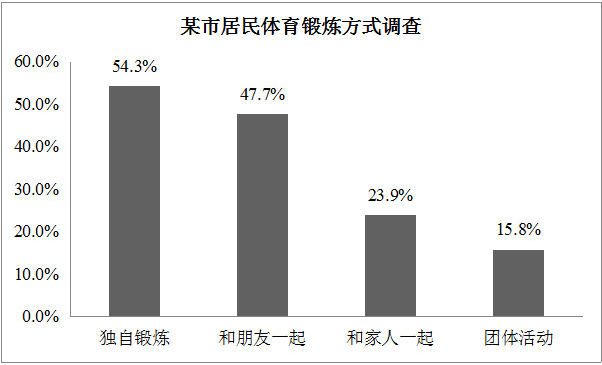Text 3
When Microsoft bought task management app Wunderlist and mobile calendar Sunrise in 2015, it picked up two newcomers that were attracting considerable buzz in Silicon Valley. Microsoft’s own Office dominates the market for “productivity” software, but the start-ups represented a new wave of technology designed from the ground up for the smart phone world.
Both apps, however, were later scrapped, after Microsoft said it had used their best features in its own products. Their teams of engineers stayed on, making them two of the many “acquit-hires”that the biggest companies have used to feed their insatiable hunger for tech talent.
To Microsoft’s critics, the fates of Wunderlist and Sunrise are examples of a remorseless drive by Big Tech to chew up any innovative companies that lie in their.
path. “They bought the seedlings and closed them down,” complained Paul Arnold, a partner at San Francisco-based Switch Ventures, putting paid to businesses that might one day turn into competitors. Microsoft declined to comment.
Like other start-up investors, Mr Arnold’ s own business often depends on selling start-ups to larger tech companies, though he admits to mixed feelings about the result: “I think these things are good for me, if I put my selfish hat on. But are they good for the American economy? I don’t know.”
The US Federal Trade Commission says it wants to find the answer to that question. This week, it asked the five most valuable US tech companies for information about their many small acquisitions over the past decade. Although only a research project at this stage, the request has raised the prospect of regulators wading into early-stage tech markets that until now have been beyond their reach.
Given their combined market value of more than $5.5tn, rifling through such small deals—many of them much less prominent than Wunderlist and Sunrise—might seem beside the point. Between them, the five companies (Apple, Microsoft, Google, Amazon and Facebook) have spent an average of only $3.4bn a year on sub-$1bn acquisitions over the past five years—a drop in the ocean compared with their massive financial reserves, and the more than $130bn of venture capital that was invested in the US last year.
However, critics say that the big companies use such deals to buy their most threatening potential competitors before their businesses have a chance to gain momentum, in some cases as part of a “buy and kill”. tactic to simply close them down.
31. What is true about Wunderlist and sunrise after their acquisitions .
A. Their market values declined
B. Their tech features improved
C. Their engineers were retained
D. Their products were re-priced
32. Microsoft’s critics believe that the big tech companies tend to .
A. ignore public opinions
B. treat new tech talent unfairly
C. exaggerate their product quality
D. eliminate their potential competitors
33. Paul Arnold is concerned that small acquisitions might .
A. harm the national economy
B. worsen market competition
C. discourage start-up investors
D. weaken big tech companies
34. The US Federal Trade Commission intend to .
A. examine small acquisitions
B. limit Big Tech' s expansion
C. supervise start-ups' operations
D.encourage research collaboration
35. For the five biggest tech companies, their small acquisition have .
A. brought little financial pressure
B. raised few management challenges
C. set an example for future deals
D. generated considerable profits
Text 4
We’re fairly good at judging people based on first impressions, thin slices of experience ranging from a glimpse of a photo to a five-minute interaction, and deliberation can be not only extraneous but intrusive. In one study of the ability she dubbed “thin slicing.” The late psychologist Nalini Ambady asked participants to watch silent 10-second video clips of professors and to rate the instructor’s overall effectiveness. Their ratings correlated strongly with students’ end-of-semester ratings.Another set of participants had to count backward from 1,000 by nines as they watched the clips,occupying their conscious working memory. Their ratings were just as accurate, demonstrating the intuitive nature of the social processing.
Critically, another group was asked to spend a minute writing down reasons fortheir judgment,before giving the rating. Accuracy dropped dramatically.Ambady suspected that deliberation focused them on vivid but misleading cues, such as certain gestures of utterances, rather than letting the complex interplay of subtle signals form a holistic impression. She found similar interference when participants watched 15-second clips of pairs of people and judged whether they were strangers, friends, or dating partners.
Other research shows we're better at detecting deception and sexual orientation from thin slices when we rely on intuition instead of reflection.“It’ s as if you’re driving a stick shift," says Judith Hall,a psychologist at Northeastern University, "and if you start thinking about it too much, you can' t remember what you' re doing.But if you go on automatic pilot, you’re fine.Much of our social life is like that."
Thinking too much can also harm our ability to form preferences College students' ratings of strawberry jams and college courses aligned better with experts' opinions when the students weren't asked to analyze their rationale. And people made car-buying decisions that were both objectively better and more personally satisfying when asked to focus on their feelings rather than on details,but only if the decision was complex — when they had a lot of information to process.
Intuition's special powers are unleashed only in certain circumstances. In one study, participants completed a battery of eight tasks, including four that tapped reflective thinking (discerning rules, comprehending vocabulary) and four that tapped intuition and creativity (generating new products or figures of speech).Then they rated the degree to which they had used intuition (“gut feelings,” “hunches,” “my heart”). Use of their gut hurt their performance on the first four tasks,as expected, and helped them on the rest Sometimes the heart is smarter than the head.
Other research shows we re better at detecting deception and sexual orientation from thin slices when we rely on intuition instead of reflection. "It' s as if you' re driving a stick shift," says Judith Hall, a psychologist at Northeastern University,"and if you start thinking about it too much, you can't remember what you're doing. But if you go on automatic pilot, you re fine. Much of our social life is like that." Thinking too much can also harm our ability to form preferences College students ratings of
strawberry jams and college courses aligned better with experts' opinions when the students weren't asked to analyze their rationale.And people made car-buying decisions that were both objectively better and more personally satisfying when asked to focus on their feelings rather than on details, but only if the decision was complex-when they had a lot of information to process.
36. Nalini Ambaby’s study deals with .
A. instructor student interaction
B. the power of people’s memory
C. the reliability of first impressions
D.People's ability to influence others
37. In Ambaby 's study, rating accuracy dropped when participants .
A. gave the rating in limited time
B. focused on specific details
C. watched shorter video clips
D.discussed with on another
38. Judith Hall mentions driving to mention that .
A. memory can be selective
B. reflection can be distracting
C. social skills must be cultivated
D. deception is difficult to detect
39. When you are making complex decisions, it is advisable to .
A. follow your feelings
B. list your preferences
C. seek expert advice
D. collect enough data
40. What can we learn from the last paragraph?
A. Generating new products takes time
B. Intuition may affect reflective tasks
C. Vocabulary comprehension needs creativity
D. Objective thinking may boost intuitiveness
答案:31-35 CDAAA 36~40 CBBAB
Part B
Directions:
Read the following text and answer the questions by choosing the most suitable subheading from the list A-G for each numbered paragraphs (41-45). There are two extra subheadings which you do not need to use. Mark your answers on the ANSWER SHEET. (10 points)
A. Stay calm
B. Stay humble
C. Don' t make judgments
D. Be realistic about the risks
E. Decide whether to wait
F. Ask permission to disagree
G. Identify a shared goal
How to Disagree with Someone more powerful than you.Your boss proposes a new initiative you think won’t work. Your senior colleague outlines a project timeline you think is unrealist.
What do you say when you disagree with someone who has more power than you do? How do you decide whether it's worth speaking up? And if you do, what exactly should you say? Here is how to disagree with someone more powerful than you.
41. E. Decide whether to wait
After this risk assessment, You may decide it’s best to hold off on voicing your opinion. Maybe you haven’t finished thinking the problem through the whole discussion was a surprise to you, or you want to get a clearer sense of what the group thinks. If you think other people are going to disagree too, you might want to gather your army first. People can contribute experience or information to your thinking--all the things that would make the disagreement stronger or more valid It' s also a good idea to delay the conversation if you re in a meeting or other public space. Discussing the issue in private will make the powerful person feel less threatened.
42. G. Identify a shared goal
Before you share your thoughts, think about what the powerful person cares about—it may be “the credibility of their team of getting a project done on time. You' re more likely to be heard if you can connect your disagreement to a higher purpose. When you do speak up, don' t assume the link will be clear You ll want to state it overtly, contextualizing your statements so that you re seen not as a disagreeable underling but as a colleague who' s trying to advance a shared goal. The discussion will then become more like a chess game than a boxing match,” says Weeks
43. F. Ask permission to disagree
This step may sound overly deferential, but it's a smart way to give the powerful person psychological safety and control. You can say something like, I know we seem to be moving toward a first-quarter commitment here i have reasons to think that won 't work i' d like to way out my reasoning. Would that be ok? This gives the person a choice, allowing them to verbally opt in. And, assuming they say yes it will make you feel more confident about voicing you disagreement.
44. A. Stay calm
You might feel your heart racing or your face turning red but do whatever you can to remain neutral in both your words and actions. When your body language communicates reluctance or anxiety,it undercuts the message. It sends a mixed message, and your counterpart gets to choose what to read. Deep breaths can help, as can speaking more slowly and deliberately. When we feel panicky we tend to talk louder and faster. Simply slowing the pace and talking in an even tone helps the other person calm down and does the same or you. It also makes you seem confident, even if you aren’t.
45.B. Stay humble
Emphasize that you re offering your opinion, not gospel truth.I may be a well-informed, well-researched opinion, but it's still an opinion, my talk tentatively
and slightly understate your confidence instead of saying something like,"If we set an end-of-quarter deadline, we'll never make it," say,This is just my opinion, but don’t see how we will make that deadline. Having asserted your position(as a position, not as a fact)demonstrate equal curiosity about other views remind the person that this is your point of view and then invite critique. Be open to hearing other opinions.
答案:41~45 EGFAB
Section III Translation
46. Directions:
Translate the following text into Chinese. Write your translation neatly on the ANSWER SHEET. (15 points)
We tend to think that friends and family members are our biggest sources of connection, laughter and warmth. While that may well be true, researchers have also recently found that interacting with strangers actually brings a boost in mood and feelings of belong that we didn’t expect.
In our series of studies, researchers instructed Chicago area commuters using public transportation to strike up a conversation with someone near them. On average, participants who followed the instruction felt better than those who had been told to stand or sit in silence. There searchers also argued that when we shy away from casual interaction with strangers, it is often due to a misplaced anxiety that they might not want to talk to us. Much of the time, however, this belief is false. As it turns out, many people are actually perfectly willing to talk—and may even be flattered to receive your attention.
Section IV Writing
Part A
47. Directions:
Suppose you are organizing an online meeting. Write an email to Jack, an international student.
1) invite him to participate, and
2) tell him the details
You should write neatly on ANSWER SHEET 2.
Do not sign your own name at the end of the e-mail. Use "Li Ming"instead.
Do not write the address.(10 points)
Part B
48. Directions:
Write an essay based on the chart below. In your writing, you should
1) interpret the chart, and
2) give your comments
You should write about 150 words on the ANSWER SHEET. (15 points)

相关推荐:
扫一扫二维码,加入考研微信群
超多干货福利随机掉落,志同道合小伙伴随时交流~ | 扫一扫二维码,关注233考研微信公众号
最新资讯第一时间知晓,备考经验技巧专栏传授 |











